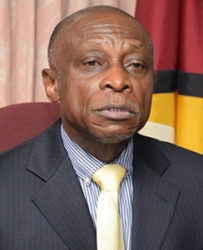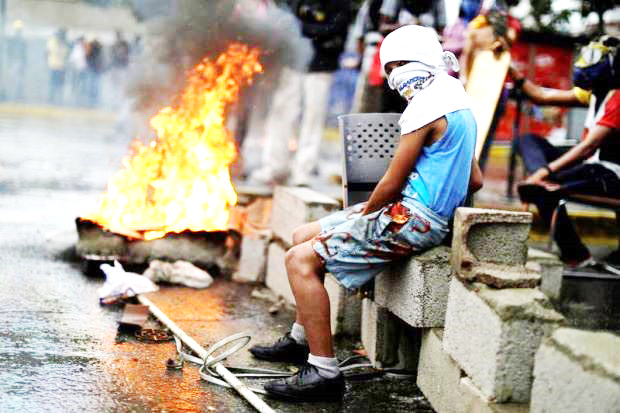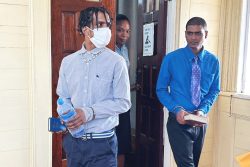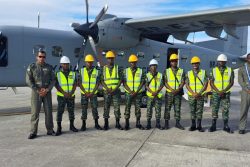As the situation in Venezuela worsens, Minister of Foreign Affairs Carl Greenidge says that Guyana and other CARICOM states are looking on with concern.
Speaking with Stabroek News at Parliament last week Greenidge noted that the 545-member constituent assembly and the problems generated by its installation are “part and parcel of wider concerns.” This assembly has been widely condemned as an attack on democracy, several countries have publicly declared their opposition to its establishment and the South American trading block MERCOSUR has suspended Venezuela indefinitely.
“We are in a region that has been looking at this matter. As the only CARICOM state to share a border with Venezuela we cannot be unaware or blind to these developments,” he said adding that Guyana is most concerned about “those things which lead to violence and undermine legislative effectiveness.”

According to Greenidge while the election of the assembly has created a sense of urgency there is a limit to what can actually be done.
“The extent to which you can do something about it is another matter. You can see something and comment on it though some might say you shouldn’t even do that but when citizens are complaining we can make an assessment of the impact of measures. You may say what you want to but you don’t always have a right to intervene,” the Minister stressed.
Meanwhile, Guyana’s Caracas Embassy continues to operate amid almost daily protests, growing isolation and dwindling food stores.
Asked if there were any plans to temporarily close the embassy and bring its staff home, Greenidge said no.
Asked if there are any safety measures being put in place to protect staff, Greenidge said “we try to pay attention to safety concerns.”
He however declined to elaborate on what measures have been taken to ensure that staff are safe, saying that he did not want to give details but the ministry is trying “to take those steps to implement prudent actions which won’t inflame or compound the situation.”
The election of the constituent assembly followed four months of sustained anti-government protest during which over 120 people were killed.
Reuters reports President Nicolas Maduro as saying that the grouping is needed to enshrine socialism more profoundly in the constitution. It has the power to dissolve or reconstitute all government bodies.
The opposition, which controls Congress, boycotted the election for the new body, saying the rules had been rigged.
Since its establishment the new body led by former Foreign Minister Delcy Rodriguez has removed Venezuela’s chief prosecutor from her post and ordered her to stand trial.
The fired prosecutor, Luisa Ortega, had become Maduro’s main challenger from within the ruling socialist movement since the start of sustained opposition street protests in April.
Two opposition leaders who had urged protests against the body were also removed from their homes in overnight raids.
Leopoldo Lopez and Antonio Ledezma were both under house arrest, the former for his role in leading street protests against Maduro in 2014 and the latter on charges of plotting a coup.







